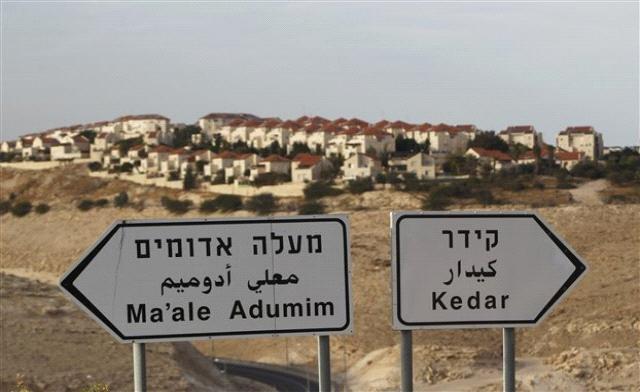Ammon News - By AL ARABIYA WITH AGENCIES
Australia on Tuesday became the latest country to summon its Israeli ambassador to convey concerns over plans to build new settlements in east Jerusalem and the West Bank.
Australia joined Britain and France in opposing Israeli settlement activity.
Foreign Minister Bob Carr said the Israeli proposal, and plans to withhold tax revenue from the Palestinian Authority, “enormously complicate the prospects for resuming negotiations between the two sides.”
“Australia has long opposed all settlement activity,” he added.
“Such activity threatens the viability of a two-state solution without which there will never be security in Israel.”
Israel, whose settlements on occupied or annexed Palestinian land have long been a thorn in the side of peace efforts, has refused to back down.
Its move is seen as payback for the Palestinians winning non-member observer state status at the United Nations on Thursday.
Some of the 3,000 homes are to be built in a corridor of land called E1, an area of the occupied West Bank that runs between the easternmost edge of annexed east Jerusalem and an existing Israeli settlement, Maaleh Adumim.
Britain, France, Denmark, Spain and Sweden have all summoned Israeli ambassadors to express deep concern, while U.N. Secretary General Ban Ki-moon called the plans a “fatal blow” to the two-state solution.
But Israel, whose settlements on occupied or annexed Palestinian land have long been a thorn in the side of peace efforts, remained defiant, insisted it would not back down and laid out revised plans for an additional 1,600 homes.
Israeli settlement plans always raise hackles but Friday’s proposals, seen as payback for the Palestinians winning non-member observer state status at the United Nations on Thursday, are considered particularly contentious.
Palestinians believe construction on E1 will ultimately connect Jerusalem to Maaleh Adumim, largely dividing the northern and southern West Bank and making the creation of a contiguous Palestinian state almost impossible.
Israeli plans for construction in E1 have been on the cards since the early 1990s but have never been implemented due to heavy pressure, largely from the United States.
The international outcry since Friday’s move has been intense.
The U.S. State Department warned on Monday that the E1 area “is particularly sensitive and construction there would be especially damaging to efforts to achieve a two-state solution.”
President Barack Obama’s spokesman Jay Carney ramped up the pressure on Israeli Prime Minister Benjamin Netanyahu later in the day, directly calling on him to change course.
“We urge Israeli leaders to reconsider these unilateral decisions and exercise restraint as these actions are counterproductive and make it harder to resume direct negotiations,” Carney told reporters at the White House.
Obama has had a history of strained ties with Netanyahu that date back to the U.S. leader’s failed efforts to secure a durable freeze on Israeli settlement activity early in his term.
Since then, the Obama administration has routinely criticized settlement construction announcements, but this time went further than usual in detailing its concerns and publicly asking Israel to reverse course.
The U.S. response is expected to be tempered by recognition that Netanyahu may be taking a tough stand on settlements ahead of a Jan. 22 Israeli national election, but that any actual building could take a long time to place in motion.
It was not immediately known whether Israel gave the United States advance notice of its settlement-building plan.
Meanwhile, Germany, Russia and Japan also criticized the Israeli plans.
But despite the clamor, Israel dug in and even went further by reviving a plan to construct 1,600 new settler homes in the east Jerusalem neighborhood of Ramat Shlomo.
“Israel continues to insist on its vital interests, even under international pressure. There will be no change in the decision that has been made,” a source in Netanyahu’s office said earlier.
Palestinian president Mahmoud Abbas slammed the Israeli decision, and called on the international community to “take the necessary steps to avoid the collapse of everything,” his spokesman Nabil Abu Rudeina said in a statement.
